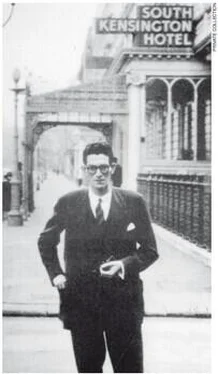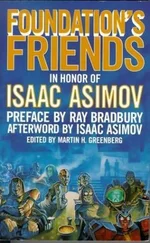Ben Macintyre - A Spy Among Friends
Здесь есть возможность читать онлайн «Ben Macintyre - A Spy Among Friends» весь текст электронной книги совершенно бесплатно (целиком полную версию без сокращений). В некоторых случаях можно слушать аудио, скачать через торрент в формате fb2 и присутствует краткое содержание. Год выпуска: 2014, ISBN: 2014, Издательство: Bloomsbury Publishing, Жанр: Старинная литература, на английском языке. Описание произведения, (предисловие) а так же отзывы посетителей доступны на портале библиотеки ЛибКат.
- Название:A Spy Among Friends
- Автор:
- Издательство:Bloomsbury Publishing
- Жанр:
- Год:2014
- ISBN:9781408851746
- Рейтинг книги:5 / 5. Голосов: 1
-
Избранное:Добавить в избранное
- Отзывы:
-
Ваша оценка:
- 100
- 1
- 2
- 3
- 4
- 5
A Spy Among Friends: краткое содержание, описание и аннотация
Предлагаем к чтению аннотацию, описание, краткое содержание или предисловие (зависит от того, что написал сам автор книги «A Spy Among Friends»). Если вы не нашли необходимую информацию о книге — напишите в комментариях, мы постараемся отыскать её.
A Spy Among Friends — читать онлайн бесплатно полную книгу (весь текст) целиком
Ниже представлен текст книги, разбитый по страницам. Система сохранения места последней прочитанной страницы, позволяет с удобством читать онлайн бесплатно книгу «A Spy Among Friends», без необходимости каждый раз заново искать на чём Вы остановились. Поставьте закладку, и сможете в любой момент перейти на страницу, на которой закончили чтение.
Интервал:
Закладка:
The timing of Elliott’s recall was probably coincidental. After six successful years as station chief in Switzerland he was due for a promotion, and accepted a new post in London, liaising with the intelligence services of friendly foreign powers. It was a job that required plenty of foreign travel, and fed what Elliott called his ‘insatiable appetite for new places and faces’. But it also gave him the opportunity to devote himself to a task closer to home, and closer to his heart: defending Philby against the accusations swirling around Whitehall. Elliott was wholeheartedly, unwaveringly convinced of Philby’s innocence. They had joined MI6 together, watched cricket together, dined and drunk together. It was simply inconceivable to Elliott that Philby could be a Soviet spy. The Philby he knew never discussed politics. In more than a decade of close friendship, he had never heard Philby utter a word that might be considered left-wing, let alone communist. Philby might have made a mistake, associating with a man like Burgess; he might have dabbled in radical politics at university; he might even have married a communist, and concealed the fact. But these were errors, not crimes. The rest of the so-called evidence was mere hearsay, gossip of the most vicious sort. The anti-communist campaign led by Senator Joe McCarthy was at its height in the United States, and in Elliott’s firm opinion Philby was the victim of a McCarthyite witch-hunt, led by a cabal of lower-class, anti-communist fanatics in MI5.
The Elliotts moved into a house in Wilton Street in Belgravia, just a few minutes from where Philby was lodging in his mother’s flat in Drayton Gardens. Within MI6, Elliott swiftly emerged as Philby’s most doughty champion, defending him against all accusers and loudly declaring his innocence. Philby was his friend, his mentor, his ally, and in the world inhabited by Nicholas Elliott, that meant he simply could not be a Soviet spy. This was a friendship Elliott prized above all others; he saw MI5’s accusations not just as a test of that bond, but as an assault on the very values of the secret club they had joined in the heat of war. Elliott was standing up for an innocent man, ‘guilty only of an unwise friendship’; and in his own mind, he was also defending his tribe, his culture and his class.
But Elliott’s resolute defence, and the widespread belief within MI6 that Philby was ‘the victim of unsubstantiated conjecture’, could not save his job. With both MI5 and the Americans demanding action, Menzies was left with little choice. C summoned his former protégé. Philby knew what was coming. According to some accounts, he may have offered to quit: ‘I’m no good to you now . . . I think you’d better let me go.’ In Philby’s version of events, C told him, with ‘obvious distress’, that he would have to ask for his resignation. His friendship with Burgess, a Soviet spy, had rendered him useless for further work as an MI6 officer. The mere size of his payoff – £4,000, equivalent to more than £32,000 today – was proof that he was leaving with honour, and the support of his service. Philby could ‘not possibly be a traitor’, Menzies told White. Philby pretended to be sanguine, accepting his role as a scapegoat. But Elliott was furious, and did nothing to hide his belief that a ‘dedicated, loyal officer had been treated abominably on the basis of evidence that was no more than paranoid conspiracy theory’.
Philby’s glittering career as an MI6 officer was over. He was now unemployed, under suspicion of treason, and under a ‘great black cloud’ of uncertainty. The family crammed into a rented gatehouse in Heronsgate, deep in the Hertfordshire countryside. Philby spent most of his time in the village pub. He knew he was being watched. Every week or so, a policeman appeared in the village and stood around looking conspicuous. The telephone was bugged, and his mail intercepted, as MI5 gathered evidence and watched to see if he would break cover. The eavesdroppers could find no evidence that he was in contact with the Soviets, but plenty to indicate the continuing support of his colleagues in MI6. Knowing who was listening in, Philby carefully maintained his pose as a man forced out of a job he loved, but without bitterness. ‘He said that he had been treated very generously and did not have any recrimination against the old firm.’ Elliott tried to cheer him up by joking about the telephone intercepts: ‘Personally I would be delighted if MI5 were to bug my own telephone because that would ensure that whenever it went wrong – as from time to time it does – it would be quickly repaired.’ Philby may not have found this funny.
Nicholas Elliott called often: his conversations with both Philby and Aileen were carefully logged and transcribed. One of these, intercepted in August, sent a sharp jolt of alarm through MI5, when Aileen was overheard telling Elliott that Philby had gone sailing with a friend, a City businessman with a yacht moored in Chichester on the south coast. ‘I suppose he is not doing a “dis”?’ Aileen asked Elliott, apparently fearful that her husband might use the boat trip to stage a ‘disappearing act’, like Burgess and Maclean, and slip over to France. Elliott laughingly reassured her that there was no danger whatever of Philby defecting.
Guy Liddell pondered whether to intercept the sailing party, but concluded that Aileen had only been speaking ‘in jest’. In any case, ‘it was already too late to stop Philby getting onto the yacht and it seemed equally unjustifiable to issue any warning to the French’. Philby returned home that evening, oblivious to the flap he had caused. But as the evidence mounted, so did MI5’s fear that Philby might be planning to make a run for it. In December, the hunters attacked again.
*
The trees were bare beside the road into London, as Philby drove south in answer to another summons from C. The inquiry was entering a new season. ‘The case against Philby seems somewhat blacker,’ wrote Liddell. As Philby headed towards the office, he imagined that MI5 must have found more evidence, and that the next few hours might be ‘sticky’. He was right on both counts. Menzies explained apologetically that a ‘judicial inquiry’ had now been launched into the disappearance of Burgess and Maclean. Would Philby mind terribly going to MI5 headquarters to answer some more questions? It was an order disguised as an invitation. The Prime Minister, Winston Churchill, had personally approved the decision to bring Philby in for questioning again. Philby’s apprehensions were fully realised when he was ushered into a fifth-floor office of Leconfield House, to find a familiar, hefty and distinctly alarming figure awaiting him.
‘Hello Buster,’ said Philby.
Helenus Patrick Joseph Milmo, universally known as ‘Buster’, was a barrister of the old school, aggressive, precise, pompous and ruthless. He had not come by his nickname lightly. He liked to flatten his opponents with a barrage of accusation, delivered in a booming baritone with an air of legal omniscience. Philby had witnessed these demolition tactics at first hand during the war when, as MI5’s legal adviser, Buster Milmo had joined him in breaking down suspected spies held at Camp 020, the secret interrogation centre in Richmond. After the war, Milmo played a starring role for the prosecution in the Nuremberg trials of Nazi war criminals. He would go on to become a High Court judge. Armed with MI5’s dossier, Milmo intended to break Philby and coerce him, by sheer force of argument, into a confession.
Philby sat down and, partly to cover his nerves, took out his pipe and lit it. Milmo instantly told him to put it out, with a sharp reminder that this was a formal judicial inquiry, equivalent to a court of law. This was untrue: the interview had no legal standing, but the exchange set the tone for what followed. Milmo came out with all guns blazing. He accused Philby of spying for the Soviets since the 1930s, sending hundreds to their deaths, betraying Volkov, and tipping off Burgess and Maclean. Philby parried, deflecting and ducking. Milmo then fired his best shot: he revealed that the volume of radio traffic between London and Moscow had jumped dramatically after Volkov’s offer to defect, suggesting a tip-off to Moscow Centre, followed by a similar leap in traffic between Moscow and Istanbul. How did Philby account for this?
Читать дальшеИнтервал:
Закладка:
Похожие книги на «A Spy Among Friends»
Представляем Вашему вниманию похожие книги на «A Spy Among Friends» списком для выбора. Мы отобрали схожую по названию и смыслу литературу в надежде предоставить читателям больше вариантов отыскать новые, интересные, ещё непрочитанные произведения.
Обсуждение, отзывы о книге «A Spy Among Friends» и просто собственные мнения читателей. Оставьте ваши комментарии, напишите, что Вы думаете о произведении, его смысле или главных героях. Укажите что конкретно понравилось, а что нет, и почему Вы так считаете.












